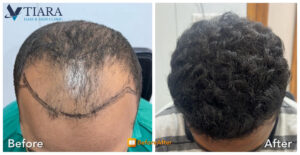Maintaining clear, radiant skin involves more than just using the right skincare products. What you eat significantly impacts your skin’s appearance, health, and overall vitality. A balanced diet rich in specific nutrients can enhance your skin’s clarity, reduce inflammation, and combat signs of aging. This comprehensive guide will delve into how your diet affects skin health and highlight the best foods to include in your daily regimen for a glowing complexion.
How Diet Affects Skin Health
- The Connection Between Nutrition and Skin Health
Your skin reflects what’s happening inside your body. Nutrient deficiencies, imbalanced diets, and unhealthy eating habits can manifest as skin issues such as acne, dryness, and premature aging. Here’s how specific nutrients contribute to healthy skin:
- Antioxidants: These compounds protect your skin from oxidative stress caused by free radicals. Free radicals can accelerate aging and contribute to skin problems. Vitamins A, C, and E are powerful antioxidants that can help neutralize free radicals and support skin repair.
- Essential Fatty Acids: Omega-3 and omega-6 fatty acids play a crucial role in maintaining your skin’s lipid barrier, which helps retain moisture and prevent dryness. These fatty acids also have anti-inflammatory properties, which can help reduce redness and swelling.
- Vitamins and Minerals: Vitamins such as B6, B12, and minerals like zinc and selenium are essential for skin health. They support various skin functions, including cell repair, collagen production, and inflammation control.
- Foods That Promote Healthy Skin
Incorporating certain foods into your diet can significantly impact your skin’s health. Here are some of the best foods to include for clear and glowing skin:
- Fruits and Vegetables
- Berries: Blueberries, strawberries, and raspberries are packed with antioxidants, including vitamin C, which helps fight free radicals and supports collagen production. Collagen is a protein that keeps the skin firm and youthful.
- Leafy Greens: Spinach, kale, and Swiss chard are rich in vitamins A and C. Vitamin A helps with skin cell turnover and repair, while vitamin C supports collagen synthesis and protects against UV damage.
- Tomatoes: Tomatoes are high in lycopene, an antioxidant that provides protection against UV damage and enhances skin texture. Lycopene also has anti-inflammatory properties that can help soothe irritated skin.
- Avocados: Avocados are rich in healthy fats, vitamins E and C, and antioxidants. These nutrients help keep the skin moisturized, reduce oxidative stress, and support overall skin health.
- Nuts and Seeds
- Almonds: Almonds are an excellent source of vitamin E, which protects the skin from oxidative damage and helps maintain its elasticity. They also provide healthy fats that keep the skin hydrated.
- Chia Seeds: Chia seeds are high in omega-3 fatty acids, which help reduce inflammation and maintain skin hydration. They also contain antioxidants that support skin health.
- Flaxseeds: Flaxseeds are rich in omega-3 fatty acids and antioxidants, which contribute to a healthy skin barrier and reduce the risk of dryness and irritation.
- Lean Proteins
- Salmon: Salmon is packed with omega-3 fatty acids and vitamin D, both of which help maintain skin hydration and reduce inflammation. Omega-3s also support skin cell health and elasticity.
- Chicken and Turkey: These lean proteins are essential for skin repair and collagen production. Collagen is crucial for maintaining skin firmness and reducing the appearance of fine lines.
- Eggs: Eggs are a great source of protein, vitamins A and D, and biotin. Biotin is important for skin health and helps improve skin texture and resilience.
- Whole Grains
- Quinoa: Quinoa is high in protein and essential amino acids that support skin repair and regeneration. It also provides fiber, which helps maintain healthy digestion and overall skin health.
- Oats: Oats are a good source of zinc, a mineral that helps control oil production and reduce acne-related inflammation. They also contain antioxidants and anti-inflammatory properties.
- Healthy Fats
- Olive Oil: Extra virgin olive oil is rich in antioxidants and healthy fats that help maintain skin hydration and elasticity. It also has anti-inflammatory properties that can soothe irritated skin.
- Coconut Oil: Coconut oil has moisturizing properties and can improve skin barrier function. It contains fatty acids that help keep the skin hydrated and smooth.
- Foods to Avoid for Clear Skin
Just as some foods can enhance your skin health, others can contribute to skin problems. Here are foods you may want to limit or avoid:
- Sugary Foods
- High sugar intake can lead to insulin spikes, which may trigger acne and other skin issues. Sugary snacks and beverages can contribute to inflammation and accelerate skin aging.
- Processed Foods
- Processed foods often contain high levels of sodium, unhealthy fats, and artificial additives that can lead to inflammation and skin problems. These foods can exacerbate conditions like acne and eczema.
- Dairy Products
- Some individuals may experience acne or skin sensitivity due to dairy consumption. Dairy products can increase oil production and contribute to clogged pores, leading to acne breakouts.
- High-Glycemic Foods
- Foods with a high glycemic index, such as white bread and pastries, can cause rapid spikes in blood sugar levels, leading to increased oil production and acne. Opt for low-glycemic alternatives like whole grains and legumes.
FAQs about Diet and Skin Health
Q1: How quickly can I expect to see results from changing my diet?
Results can vary, but many people notice improvements in skin clarity and texture within a few weeks to a few months of adopting a healthier diet. Consistency is key to achieving long-term benefits.
Q2: Can diet alone clear up acne?
While diet plays a significant role in skin health, it is best combined with a proper skincare routine and, if necessary, medical treatments for optimal results. A holistic approach ensures comprehensive care for your skin.
Q3: Are there specific foods that can help with acne?
Yes, foods high in antioxidants, omega-3 fatty acids, and zinc can help reduce inflammation and support clear skin. Incorporating berries, fatty fish, and nuts into your diet can be beneficial.
Q4: Should I take supplements for better skin health?
Supplements can be helpful if you have specific nutrient deficiencies, but it’s always best to get nutrients from whole foods. Consult with a healthcare provider before starting any new supplements to ensure they are appropriate for your needs.
Q5: How can I determine which foods are best for my skin?
Keeping a food diary can help you track how different foods affect your skin. Additionally, consulting with a dermatologist or nutritionist can provide personalized recommendations based on your skin type and concerns.
For expert skincare advice and personalized dietary recommendations for glowing skin, visit VTIARA HAIR & SKIN CLINIC. Our team can help you create a tailored plan that integrates diet and skincare for optimal results. Explore more about how nutrition and skincare can work together by visiting vtiaraclinic.com.



